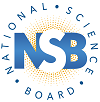Conclusion
Americans’ perceptions of science have remained generally positive and stable over time in recent decades, although recent evidence also suggests that those perceptions are not universally held and that at least some perceptions are associated with an understanding of how scientific inquiry occurs. Confidence in science and scientists to act in the best interests of the public has remained generally high among Americans for decades because the majority of Americans have reported positive assessments of science and scientists in recent decades, and Americans generally trust science and scientists. Current confidence in science varies among Americans; understanding of science as a process is associated with trust in science, for example.
Americans report seeking information on science more than those in most other countries with high levels of R&D spending. Nonetheless, a minority of Americans report recent, direct experience with science activities such as making observations for a research project or participating in a crowdsourcing activity to identify animals. Moreover, participation in science activities varies by demographics.
Perceptions of science can change over time. Recent literature highlights potential for changes in public perceptions of new science topics, such as clinical trial research and AI. The onset of the COVID-19 pandemic, for example, appears to have made the contributions of science and scientists more evident to Americans. News coverage of scientific research that benefits society appears to sometimes bolster positive perceptions of science. At the same time, most Americans acknowledge not knowing a lot about science and generally do not report regular and direct experience with scientific activities. That pattern suggests that direct exposure to the processes of scientific inquiry that generate peer-reviewed research publications has been limited among Americans.
 An official website of the United States government
An official website of the United States government
